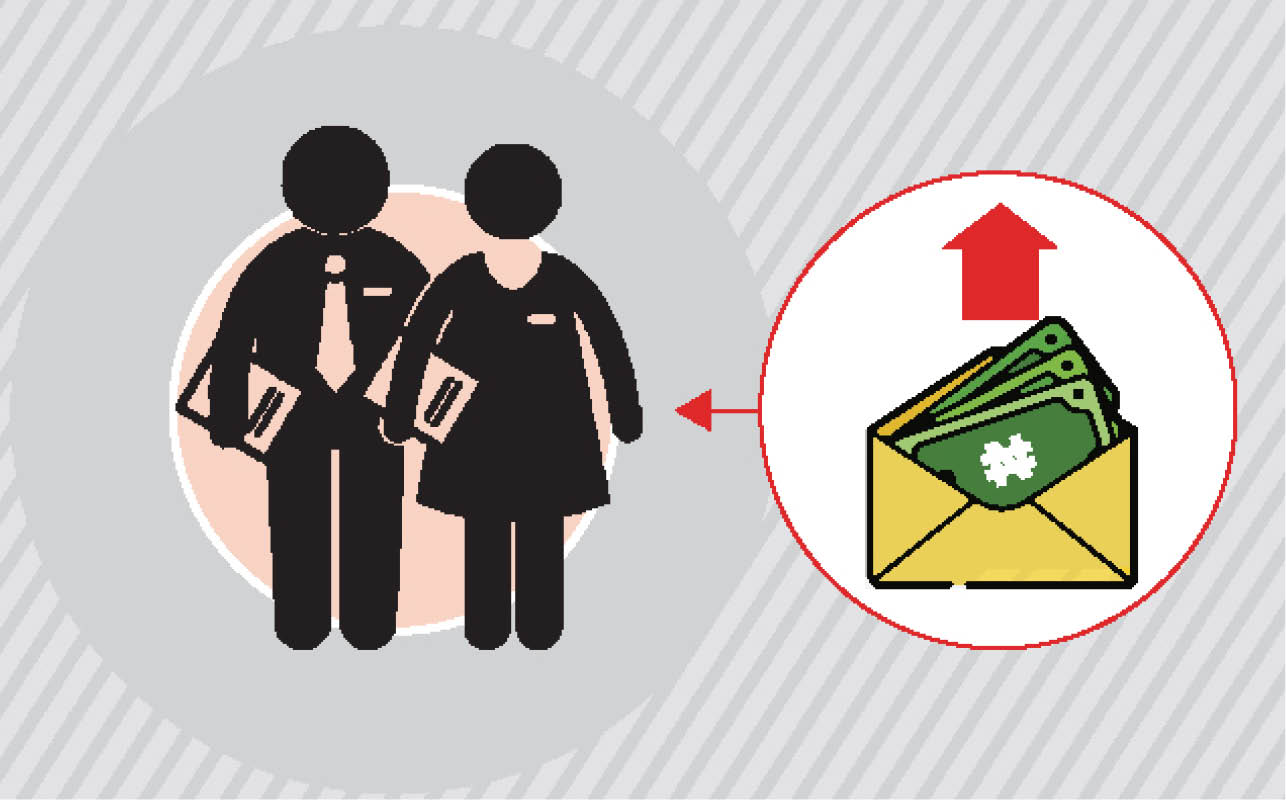Before the implementation of teachers’ new package
Let me begin by commending President Muhammadu Buhari and his government for considering, perhaps for the first time, the challenges facing teachers and the teaching profession at the basic level in Nigeria. The President’s broadcast on World Teachers’ Day and the accompanying incentives announced for teachers, if faithfully implemented by the government, will help teachers […]

Let me begin by commending President Muhammadu Buhari and his government for considering, perhaps for the first time, the challenges facing teachers and the teaching profession at the basic level in Nigeria. The President’s broadcast on World Teachers’ Day and the accompanying incentives announced for teachers, if faithfully implemented by the government, will help teachers live in dignity and make the teaching profession dignified.
It is depressing that the prestige with which teachers and the teaching profession were held has been gradually eroded in Nigeria, particularly from 1999 when the country returned to democratic governance. The deteriorating fortune of the teaching profession, which hitherto was exclusively for those who had both the qualification and the capacity, started when suddenly it changed into a transition vocation for those waiting for better jobs. Later, a tool for the settlement of political benefactors – their wives, sons and daughters get teaching jobs as compensation for their support during elections – and lately, an enterprise, as offers of teaching appointment are allegedly being sold to whoever can buy. Gradually, teachers have become the least paid and the last to be paid. Teaching job has become the least sought-after while education, especially at the basic level, has become just an avenue for attaining elementary literacy.
Teachers in many states only smile on the payday because they can settle their old debts and take new ones. In many states, teachers, without their knowledge and/or consent, have loans arranged for them by the leaders of local education authorities in collusion with politicians. Such loans are in the form of food items or motorcycles at many times the original price, with stringent repayment plans that are deducted at source.
Many times, many teachers have their salaries withheld immediately after every election on allegations of loyalty to opposition parties. The fortunate among them get part of their salaries paid while the other part is withheld under the pretext of carrying out investigations of alleged support for the opposition. Such investigations are usually never carried out and the withheld salaries never ever refunded. Many times, many teachers get relieved of their jobs when accused, rightly or wrongly, of supporting the opposition. The fortunate ones among them suffer punitive transfers to the remotest parts of the states. These and many other arbitrary measures against teachers have continued to make them the most humiliated of all government workers.
Therefore, for the proposed inducements to be meaningfully beneficial to the teachers, there is the urgent need for the federal government ahead of the implementation to consider the possibility of taking over the payment of teachers emoluments from the state and local governments. This may be done not as an additional financial burden on the federal government, but by deducting from source such emoluments from the monthly statutory allocation to the states and local governments. It is only when this is done, that the teachers, and by implication, the teaching profession, will directly benefit from the benevolence of the federal government. If this is not done, then someone else, and not the teachers, will be the covert beneficiary of the package.
Abubakar Atiku Alkali, PhD. Senior Lecturer, Department of Modern European Languages and Linguistics, Usmanu Danfodiyo University, Sokoto.
